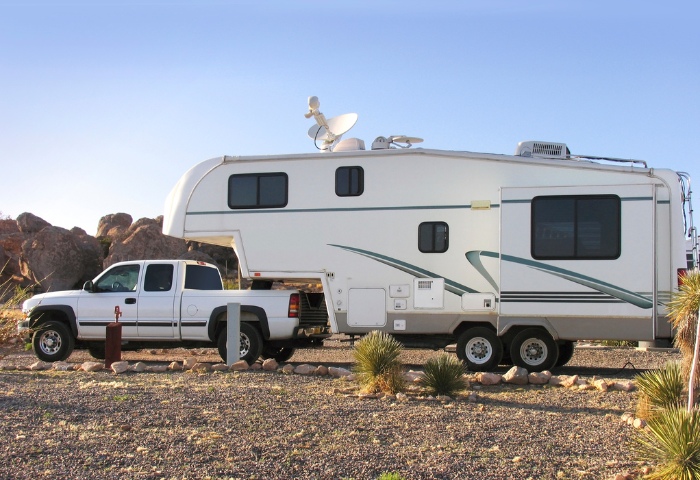Fifth wheel trailers are designed to be towed by pickup trucks equipped with a special hitch, known as a fifth wheel hitch, which is mounted in the bed of the truck. This hitching system provides greater stability and maneuverability compared to traditional bumper-pull trailers.
These trailers come in a range of sizes, from compact models suitable for couples to large, luxurious units that can accommodate families.
Transporting a fifth wheel trailer over long or short distances can be necessary for a variety of reasons, such as relocating for a new job, visiting a coveted vacation spot, or attending a special event.
Whether you’re moving across the country or simply need to transport your trailer to a nearby campground, hiring an auto transport service can be incredibly useful.
Professional transport services provide safety and convenience, ensuring your trailer is handled with care and arrives at its destination without the wear and tear of additional miles.
These services also offer specialized equipment and expertise to handle your trailer’s unique requirements, whether it involves towing with a fifth wheel hitch or hauling on a flatbed.
When it comes to transporting your fifth wheel trailer, choosing between towing and hauling depends on several factors, including the distance, condition of your trailer, and your budget. Let’s explore which option might be better suited for your needs.

Navigation
What is Fifth Wheel Towing?
Fifth wheel towing involves using a specialized hitch system mounted in the bed of a pickup truck to tow a fifth wheel trailer.
The hitch placement over the truck’s rear axle distributes weight more evenly, providing enhanced stability during towing. This design minimizes the risk of trailer sway and improves overall handling.
Typically, heavy-duty pickup trucks equipped with a fifth wheel hitch are used for this purpose, allowing for an even distribution of weight over the truck’s rear axle.
This design minimizes trailer sway and enhances overall handling, making it a popular choice among RV enthusiasts.
One of the major benefits of fifth wheel towing is its flexibility; it allows for easy maneuvering, especially useful for short-distance travel.
Towing is often more cost-efficient for shorter trips as it requires less specialized equipment compared to hauling, making it a good choice for those looking to transport their trailers without the added expense of hiring a flatbed or specialized hauler.
Here are some scenarios where towing might be the best choice:
- Short-Distance Travel: If you’re planning a local move or a short road trip, towing is often more economical. It requires less specialized equipment, reducing costs.
- Roadworthy Trailers: Trailers that are in good condition and can safely be towed benefit significantly from this method. The direct connection to the truck provides excellent stability and handling.
- Convenience: Towing allows for quick preparation and setup, making it ideal for frequent travelers who need to move their trailers regularly.
What is Fifth Wheel Hauling?
Fifth wheel hauling involves transporting a trailer by placing it on a flatbed truck or specialized trailer, rather than towing it with a hitch.
This method is particularly advantageous for trailers that are not roadworthy or require transportation over long distances.
The equipment used in fifth wheel hauling includes flatbed trucks designed to accommodate the weight and size of the trailer securely, ensuring stability during transit.
Specialized trailers may also be employed, featuring additional support mechanisms tailored to the unique dimensions of fifth wheel units.
One of the primary benefits of hauling is the added safety it provides, as it protects the trailer from wear and tear associated with road travel, such as tire and suspension damage.
Additionally, hauling minimizes the risk of accidents or damage over extended journeys, making it an ideal choice for cross-country moves or when transporting trailers that need repairs or have specific handling requirements.
Consider hauling if:
- Non-Roadworthy Trailers: If your trailer needs repairs or isn’t safe to tow, hauling is the safer option. It avoids additional wear and tear on the trailer’s tires and suspension.
- Long-Distance Moves: For cross-country trips, hauling offers greater protection and minimizes the risk of damage during transit. It’s also a good choice for avoiding road fatigue on longer journeys.
- Specialized Needs: Trailers that require special handling or are too large to be safely towed benefit from hauling, as it involves equipment designed to accommodate such requirements.
Making Your Decision
Ultimately, the choice between towing and hauling depends on your specific circumstances. If cost is a major concern and your trip is short, towing might be more practical. However, if safety and protection are paramount, especially for long distances or non-roadworthy trailers, hauling is the better option.
When deciding, consider reaching out to reputable auto transport companies like Beeline Auto Transport for personalized advice and a comprehensive quote. They can help evaluate your needs and recommend the best transport method for your fifth wheel trailer.


